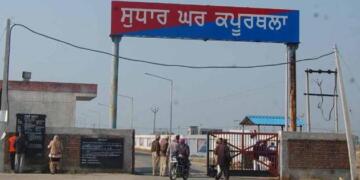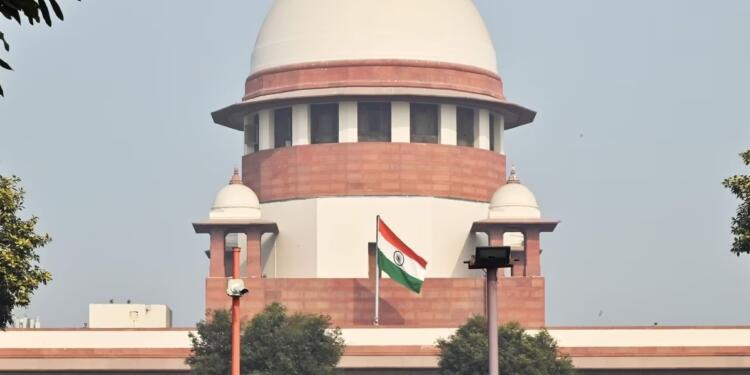At a felicitation event held in his hometown of Amravati, Maharashtra, Chief Justice of India Bhushan Ramkrishna Gavai made a clear and forceful declaration: it is the Constitution of India, not Parliament that holds supreme authority in the country. Speaking before an audience that included local dignitaries, members of the legal fraternity, and civil society, CJI Gavai addressed what he described as a “common misconception” regarding institutional supremacy in India’s democratic framework.
“There is always a discussion as to which wing of democracy is supreme,” he said. “While many say and believe that Parliament is supreme, according to me, it is the Constitution of India that is supreme. All three wings of democracy- legislature, executive, and judiciary function within the framework laid down by the Constitution.”
His remarks were not merely ceremonial. They came at a time when debates over institutional limits, constitutional interpretation, and the role of the judiciary are becoming increasingly central to India’s political and legal discourse.
Basic Structure Doctrine: Parliament’s Power Has Limits
CJI Gavai referred to the Supreme Court’s landmark doctrine on the ‘basic structure’ of the Constitution, first laid out in the 1973 Kesavananda Bharati judgment. Reaffirming the doctrine’s enduring relevance, he clarified that while Parliament possesses the authority to amend the Constitution, it cannot alter its fundamental architecture.
“This foundational principle ensures that core constitutional values remain protected,” he said. “It prevents any political majority from dismantling the essential features of our democracy.”
The remarks align with the judiciary’s consistent position over the years that constitutional amendments must respect the inviolable structure of the Constitution, including federalism, secularism, separation of powers, and the rule of law.
Judicial Independence Is Not Populism
The Chief Justice also addressed a rising concern within the judiciary: the influence of public opinion on judicial decisions. He cautioned against what he termed ‘populist temptations’, stressing that public mood or media narratives cannot dictate the outcome of constitutional interpretation.
“We have to think independently,” he said. “What people will say cannot become part of our decision-making process. A judge must always remember that our responsibility lies with the Constitution and the rights of the people, not with applause or approval.”
CJI Gavai emphasized that judicial independence does not imply opposition to the government, but rather an unwavering commitment to constitutional values. “A judge is a custodian of the Constitution, and of the fundamental rights it guarantees,” he added. “Judicial power must be exercised with restraint, clarity, and deep constitutional responsibility.”
Right to Shelter and the Critique of “Bulldozer Justice”
In a significant part of his address, CJI Gavai cited one of his recent rulings that condemned the practice of extra-legal demolitions, often referred to as ‘bulldozer justice’. Without naming specific states or incidents, he reaffirmed that the right to shelter is a fundamental right under the Constitution.
“Justice must be tempered with compassion and respect for rights,” he said. “State action must always follow due process. Demolitions carried out without legal backing or notice violate the most basic principles of justice.”
His comments come at a time when state-led demolitions, often targeting alleged encroachers without judicial review, have become a subject of nationwide concern. The Chief Justice’s words served as a strong judicial reminder that constitutional protections cannot be bypassed in the name of administrative efficiency or political messaging.
Personal Journey: From Architect’s Dream to the Nation’s Highest Bench
Towards the end of his speech, CJI Gavai reflected on his personal journey, recalling that he once aspired to become an architect. However, it was his late father’s dream that ultimately guided him toward law.
“My father always wanted to become a lawyer, but he couldn’t fulfill that dream because he was jailed during the freedom struggle,” he shared. “It became my mission to carry that dream forward.”
Justice Gavai, who was sworn in last month as the 52nd Chief Justice of India, is the second individual from the Scheduled Caste community to hold the position- a historic milestone both for the judiciary and for social equity in Indian public life.
A Caution, A Commitment, A Constitutional Message
The speech delivered in Amravati was more than a personal reflection, it was a message. At a time when the balance between institutions is being renegotiated, CJI Gavai’s remarks emphasized the one constant: the Constitution remains the cornerstone of the Republic.
“Let us be guided not by power, not by politics, but by the principles laid down in the Constitution,” he said. “It is our true North Star.”























